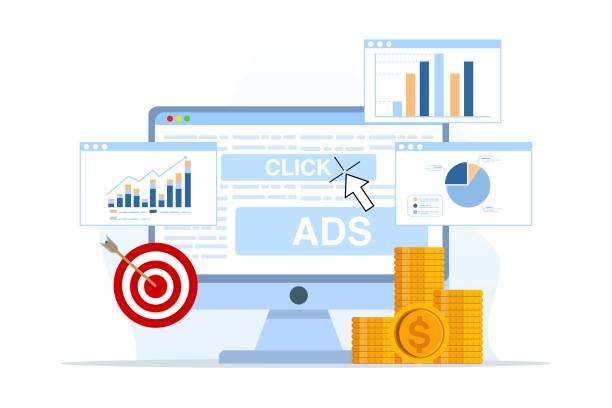1. Importance of Digital Marketing
Digital marketing has become an essential tool for every small business today. It is a platform that helps small companies market their products and services to a larger audience. Today, digital marketing helps businesses increase their brand awareness, attract new customers, and retain their existing customers. Every business, big or small, can accelerate its growth if it uses digital marketing properly. In this article we will discuss some modern digital marketing strategies that can be beneficial for small businesses.
2. WEBSITE DEVELOPMENT OR IMPROVEMENT
Nowadays, every business is identified by its website. A well-designed and user-friendly website enhances the reputation of your business and provides consumers with the bare bones knowledge of your products and services. Small business should optimize their website to get good ranking on search engines. It does stem from SEO (Search Engine Optimization) techniques, which include keyword research, on-page optimization, and quality content creation. Your website must also be mobile-friendly and fast-loading, as more and more people use mobile devices these days.
3. Content Marketing
Content marketing is a strategy that enables you to create valuable and relevant content to attract your target audience. This content can be in the form of articles, blog posts, videos, infographics, and social media posts. Small businesses should create content relevant to their industry that is useful and informative to their audience. Content marketing can help you establish your business as a thought leader and build a strong relationship with customers. . Updating content on a regular basis is also important to keep your audience engaged and increase your website traffic.
4. Social media marketing
Social media platforms like Facebook, Instagram, Twitter, and LinkedIn are a powerful tool for small businesses to increase their brand exposure. Social media marketing allows you to promote your products and services, get customer feedback, and interact directly with your audience. Each platform has its own audience, so you should choose a platform tailored to your target audience. Regular posting, engaging content, and targeted advertising are some of the essential elements of social media marketing that you should include in your digital marketing strategy.
5. Email Marketing
Email marketing is an effective strategy that helps small businesses maintain a strong relationship with their customers. What techniques do you use to send promotional emails, newsletters, and updates that provide valuable information to your customers? Personalization and segmentation are key components of email marketing that help you send targeted messages. Regular tracking and analysis of email marketing campaigns is also important to improve your strategies and achieve your goals.
6. Paid Advertising
Paid advertising, such as Google Ads and social media ads, is a way for small businesses to quickly expand their reach. These ads give you the opportunity to ask directly to your target audience and give you instant results. It is important to optimize paid advertising strategies, which include keyword research, ad copy creation, and targeting options. Running campaigns regularly and monitoring performance and analysis are also important to ensure you manage your ad spend effectively.
7. Search Engine Optimization (SEO)
SEO, or Search Engine Optimization, is an important strategy for small businesses to improve their website’s visibility to search engines. Includes keyword optimization, on-page SEO, and off-page SEO techniques. Doing keyword research, creating high-quality content, and building backlinks are key components of SEO and help you achieve higher search engine rankings. Constantly updating SEO strategies and keeping up with industry trends is essential to stay ahead of your competitors.
8. Local SEO
Local SEO is especially important for small businesses that want to target local customers. Local SEO strategies include optimizing your Google My Business profile, generating local referrals, and managing customer reviews. To improve the local exposure of your business you should use local keywords and list your business in local directories. Local SEO allows you to easily reach out to your local audience and increase your presence in your geographic area.
9. Influencer Marketing
Influencer marketing is a strategy in which you collaborate with industry influencers who promote your brand. These influencers share your products and services with their followers, increasing your brand’s credibility and reach. Small businesses should identify influencers relevant to their niche and effectively partner with them. When planning influencer marketing campaigns, transparency and honesty are also important to ensure your campaign is successful.
10. Video Marketing
Video marketing is a tool for small businesses to engage and create interactive content. Videos can be used for product demonstrations, customer testimonials, and how-to guides. By sharing video content on social media platforms, YouTube, and your website, you’ll connect with your audience. High-quality videos and a consistent posting schedule are key elements of video marketing success. Regular tracking of video analytics is also important to improve your video marketing strategy.
11. Analytics and Performance Tracking
Effective digital marketing strategies require analytics and performance tracking. Tools like Google Analytics and Social Media Insights provide you with valuable data that helps you measure the effectiveness of your marketing efforts. What data gives you a lot of information about your website traffic, user behavior, and campaign performance. Regular performance tracking allows you to analyze your marketing strategies and make necessary adjustments to help you achieve your business goals.
12. Customer Engagement and Feedback
Customer engagement and feedback is an important aspect for small businesses that helps them enhance their marketing strategies. Engaging with customers through social media, email, and website interactions helps you understand their needs and preferences. It is important to regularly collect customer feedback and implement it into your products and services. This feedback helps you improve your customer satisfaction and increases your brand loyalty.
13. Mobile Marketing
Mobile marketing is a strategy that helps small businesses target their mobile customers. More and more people use mobile devices today, so it’s important to include mobile marketing in your digital strategy. Mobile-friendly websites, SMS marketing, and app-based marketing are key components of mobile marketing. Optimizing mobile marketing campaigns and improving user experience is also essential so you can effectively engage your mobile audience.
14. E-Commerce Optimization
If your business sells online, e-commerce optimization is essential. This strategy improves the usability and performance of your online store. E-commerce optimization includes enhancing product listings, checkout processes, and customer support. High-quality product images, detailed descriptions, and a smooth checkout experience are critical factors for e-commerce success. Managing customer reviews and ratings is also important as you repeatedly scan your online sales.
15. Future Trends in Digital Marketing
Digital marketing is a rapidly evolving field, and new trends and technologies emerge every year. Small businesses must keep updating their digital marketing strategies and adapt to new trends. Technologies like AI (Artificial Intelligence), AR (Augmented Reality), and voice search are future digital marketing trends that will create new opportunities for businesses. Monitoring future trends and adapting your marketing strategies will give you a competitive edge and sustain your business growth.
Conclusion
Finally, digital marketing is a powerful tool for small businesses that are struggling to drive growth and success. By using effective digital marketing strategies, small businesses can achieve their goals and strengthen their market position. It’s important to customize each strategy and apply it to the specific needs of your business to get you the best results.










